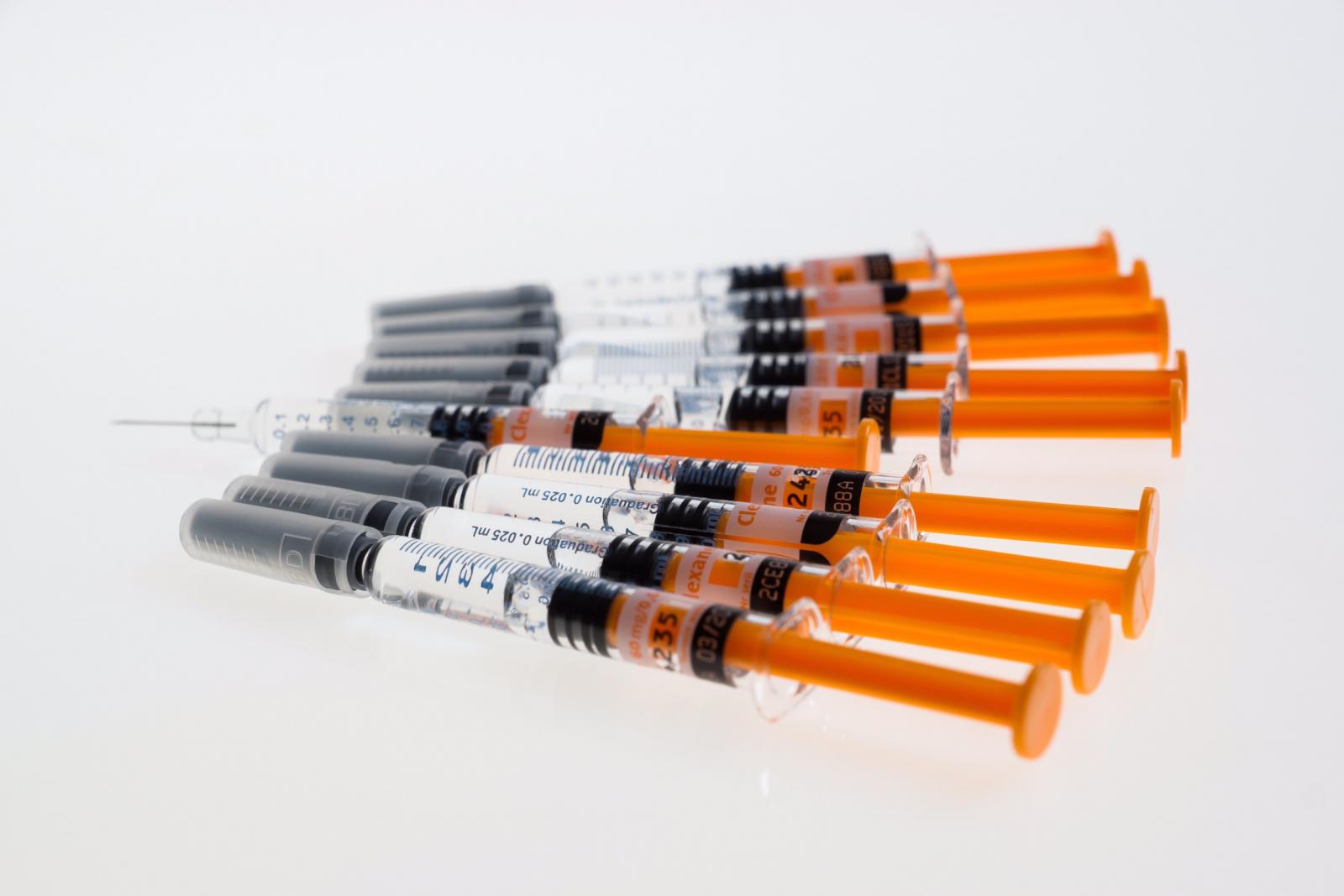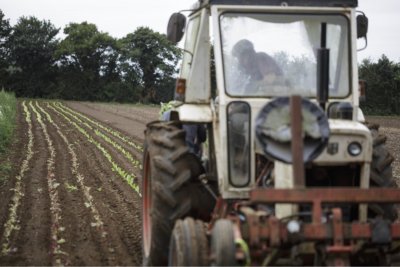Government plans to avoid EU ban on farmers using preventative antibiotics
The Alliance to Save Our Antibiotics - convened by Sustain, Compassion in World Farming and the Soil Association - expresses dismay at plans for the UK to continue to allow routine use of farm antibiotics after Brexit, despite an imminent EU-wide ban on this dangerous practice.

The government’s Veterinary Medicines Directorate (VMD) has indicated that it intends to avoid implementing an imminent EU ban on livestock farmers using antibiotics for preventative mass medication. The EU regulation is expected to come into force after Brexit. The full story is reported in The Guardian newspaper.
The European Council of Ministers and representatives of the European Parliament recently agreed a new Regulation on Veterinary Medicines which will ban preventative antibiotic mass medication in farming. The new regulation is expected to be approved by the full European Parliament within the next few weeks, and come into force in late 2021 or early 2022.
However, at a VMD stakeholder meeting on 3 July 2018 attended mainly by farming and pharmaceutical industry representatives and veterinarians, the government’s regulator said that the UK will have left the EU by then and that it planned to “implement the new regulations as fully as we see fit” and that “there may be some clauses we wish to omit/alter.” This could allow British livestock farmers to continue feeding antibiotics in feed and drinking water to groups of animals for disease prevention, a practice to be explicitly outlawed in other European countries.
This has implications for antimicrobial resistant superbugs, and also for future UK trade deals. Variance from European farm antibiotic regulation could make it difficult for British farmers to sell livestock products to EU countries. Meanwhile, lower antibiotics regulation could facilitate trade with countries with profligate use of antibiotics, such as the US and China.
Cóilín Nunan, of the Alliance to Save Our Antibiotics, said:
“This European ban on preventative mass medication is long overdue and has taken Member States years to agree. It will be hugely important for protecting human health, so it’s shameful that the VMD is saying that the UK is going to avoid implementing it. The government’s approach means that farmers will be able to continue feeding antibiotics, including critically important and last-resort antibiotics in human medicine, to groups of healthy animals.
“The government claims to be the world leader* on tackling antibiotic misuse in farming, but the UK may end up as one of the only countries in Europe that still allows this kind of irresponsible use of antibiotics. What kind of trade deals will the UK be signing with countries like the US and China, which massively overuse farm antibiotics, if at the same time it has some of the lowest regulatory standards in Europe?”
A senior representative of the VMD claimed that the regulation is ambiguous and “allowed for group prophylaxis”, but the regulation clearly states that “the use of antibiotic medicinal products for prophylaxis shall be limited to the administration to [an] individual animal only”.*
In contrast to the VMD, the European Commissioner for Health and Food Safety, Vytenis Andriukaitis, said in the European Parliament last month that “the draft regulation includes a ban on preventive use of antibiotics in groups of animals” , and in June a press release from the European Parliament said that the new law “would limit the prophylactic use of antimicrobials (i.e. as a preventive measure, in the absence of clinical signs of infection) to single animals, only when fully justified by a veterinarian in cases where there is a high risk of infection with severe consequences.”
Cóilín Nunan said: “By falsely claiming that the proposed regulation allows for preventative antibiotic mass medication, the VMD’s and the government’s strategy appears to be to refuse to implement a hugely important EU law while at the same time claiming regulatory equivalence with Europe."
"The antibiotic-resistance crisis is so serious that two years ago many of the UK’s most senior medics wrote to the government asking it to back an EU-wide ban on preventative antibiotic mass medication in farming. But in the end, the government has given in to industry lobbying and has decided that their profits should take precedence over people’s lives.”***
Notes
* In October 2016, Defra Minister of State George Eustice said: “the UK is the world leader on getting out the agenda that we need to reduce our use of antibiotics in agriculture and tackle the problem of antimicrobial resistance”
** Article 111a.2 of the proposed Veterinary Medicines Regulation reads:
“Antimicrobial medicinal products shall not be used for prophylaxis unless, in exceptional cases for the administration to an individual animal or a restricted number of animals when the risk of an infection or of an infectious disease is very high and the consequences are likely to be severe. In such cases the use of antibiotic medicinal products for prophylaxis shall be limited to the administration to [an] individual animal only, under the conditions laid down in the first sentence.”
Prophylaxis is the administration of a medicine to an animal or group of animals before clinical signs of a disease, in order to prevent the occurrence of disease. Although, under exceptional circumstances, the article quite reasonably permits prophylaxis in more than one animal (for example if more than one cow in a herd has a difficult birth requiring veterinary intervention), it explicitly says that the administration of the antibiotic has to be to an individual animal only. However, when antibiotics are added to feed or drinking water, this is always to treat a group of animals. These prophylactic group treatments are not permitted under the regulation.
*** The Veterinary Medicines Directorate is an executive agency of Defra. They are responsible for regulating veterinary medicines, including making and enforcing legislation, but also advise Ministers on veterinary-medicine policy including policies relating to antibiotic resistance. Their largest source of funding comes from the pharmaceutical industry.
Published Thursday 27 September 2018
Save Our Antibiotics: The Alliance to Save Our Antibiotics is a coalition of health, medical, environmental and animal welfare groups campaigning to stop the overuse of antibiotics in animal farming.





